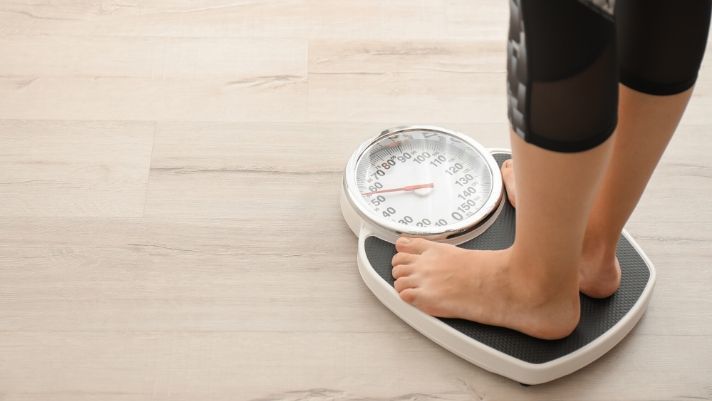
Doctors who work with patients struggling to achieve and maintain a healthy weight understand the frustration when, despite all efforts, the pounds just won’t budge. Evaluate these common reasons why you’re not losing weight.
Relying on Exercise Alone
The hard truth is that without a reduction in food intake, exercise alone won’t get you to your weight loss goal. Weight loss requires burning more calories than you take in. Exercise is not a way to earn the chance to eat more or to eat high-calorie foods. It’s simply something everyone should do for a minimum of 150 minutes per week to stay in general good health.
The type of exercise you do matters, too. Studies have shown that, between aerobic and strength exercise, aerobic exercise goes farther toward weight loss. Aerobic exercise uses major muscle groups in a continuous, sustained way and gets energy from the body’s effort to consistently supply oxygen. Running, vigorous dancing, and cycling are examples of aerobic exercise that use the legs and arms continuously.
Anaerobic exercise, such as weight-lifting, involves shorter bursts of energy. Energy for this exercise comes from the body’s stored glucose. This kind of exercise builds muscle and helps lift your basal metabolic rate, or the pace at which your body uses calories to breathe, pump blood, and digest food. This has long-term benefits. Muscle weighs more than fat, so adding muscle may mean a healthier—yet still heavy—body. A combination of aerobic and anaerobic activity is best for weight loss.
Overeating Healthy Foods
How much you eat is just as important as what you eat. Eating too many calories’ worth of healthy foods will sabotage your weight loss. The exception seems to be vegetables. Consuming a lot of plant-based foods will hurt you less than eating too much dairy and meat. However, if you choose a plant-based regimen, make sure you’re including sufficient protein in your diet.
Sugar, Sleep, and Stress
Lack of sleep and an excess of stress can wreak havoc on your hormones and even lead to insulin resistance, which makes it harder to lose weight and could in turn lead to diabetes. Furthermore, forgoing food in favor of sugary sodas will get you nowhere with weight loss. Some evidence suggests that some artificial sweeteners may cause weight gain. Stick to water to stay hydrated.
Undiagnosed Medical Conditions
Certain medical disorders can cause weight gain or at least make it very hard for you to lose weight. Thyroid disorders, problems related to diabetes, and hormonal disorders such as polycystic ovarian syndrome may be present but undiagnosed. If you’ve tried everything and nothing is working to help you lose weight, it may be time to consult a top endocrinologistin NYC. These specialists diagnose and treat malfunctions and imbalances in the systems that produce and regulate hormone levels.
Special note : We realize these are extraordinary times in New York City and across the Empire State. If you’re experiencing symptoms of illness, contact your primary care physician for advice. Social distancing can make maintaining healthy habits difficult, but stressing over it is counterproductive. The healthiest thing to do right now is to follow the CDC’s recommendations for protecting yourself and slowing the spread of COVID-19.

